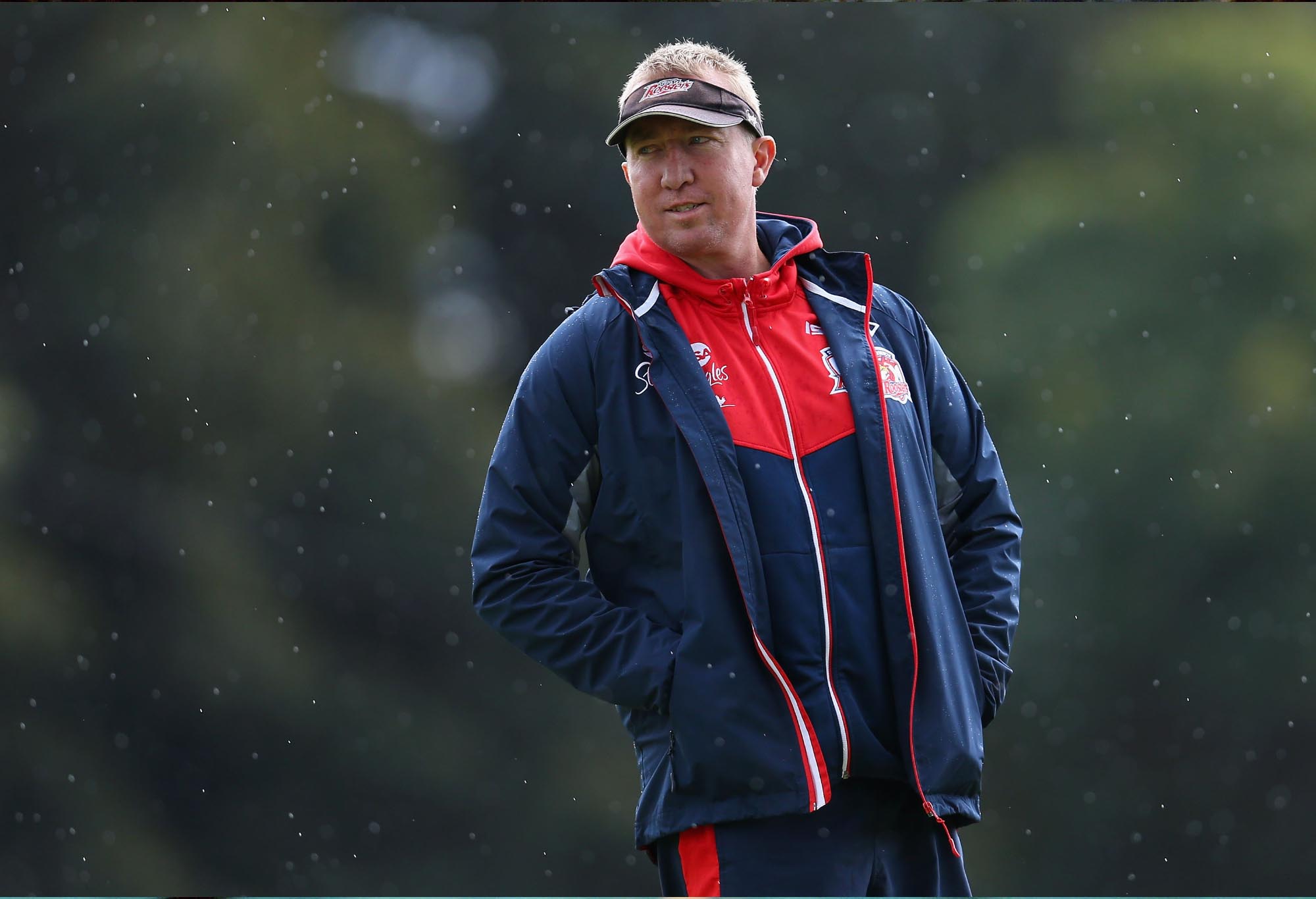Why the NRL should bring in automatic sin bins for any player who bothers referee unless it’s the captain

Many a criticism is made in regards to the robotic nature of modern rugby league and amid all the mayhem, natural talent and off-the-cuff play, there are formulaic elements to the game that can look quite tedious at times.
Yet it is the demanded precision of the organised structure of defences, positioning and rehearsed attacking plays that allows them to work successfully.
Without diligent attention to detail and structured plans, an NRL coach is effectively free-wheeling in a professional sport that simply demands more detailed planning.
Coaches cannot simply ‘chat’ with players and give them the essence of what they require from them.
Far from it.
They draw on whiteboards, drill players endlessly with video reviews of previous matches and position them on the training pitch, sometimes with their own hands, explaining the important technical aspects of body shape and height.
Modern NRL coaches like Trent Robinson are technically minded and need to be. (Photo by Jason McCawley/Getty Images)
It is all very technical stuff that within the context of the game, players must get right before ad-libbing and entertaining the crowd with their natural skills.
Whilst some may lament the robotic elements of the modern game, it is potentially a valuable lesson for the NRL Commission as it seeks to address the ever-lingering problem of the way athletes interact with officials and specifically, abuse them in the heat of battle.
Clint Gutherson threw his toys out of the cot a number of times last Monday afternoon, frustrated by what he felt were some dubious calls during Parramatta’s loss to the Bulldogs at Accor Stadium.
Referee Peter Gough was incensed at the way he was spoken to by the Parramatta captain and made his feelings clear on a few occasions via hollow threats about a potential trip to the sin bin for the perpetrator.
Having attempted to address dissent and halt the absurd scenes of the past where players other than the captain would haggle, stall and distract the referees in an attempt to slow down play, the NRL has far from fixed the problem.
With everyone aware of incidents occurring at local grounds, where over-zealous parents and players sometimes lose control and engage distastefully with referees, the continuing need to stamp out behaviour like what we saw from Gutherson on Monday is paramount.
Currently, referees appear to work under incredibly intense conditions and in a state of fluster for 80 minutes. Their training appears to demand constant warning of players and coaching them to remain on-side and form pointless scrums correctly.
No referee deserves the abuse some fans are only too keen to dish out. (Photo by Mark Nolan/Getty Images)
Then, after the fact, a captain strolls towards them and demands an explanation of a decision that is certain not to change unless a challenge is used.
The officials look and sound exhausted, under pressure constantly from the opening whistle and at times seemingly more concerned with choreographing the whole affair, rather than watching the play and making the important decisions.
In short, they simply have far too much to oversee and be concerned about.
The solution, and there is one based on what we see in some other sports, where the battle to promote positive interactions with officials has been mostly won, is to make the referees as robotic as the modern rugby league player.
If the ARL Commission issued a statement this week to all 17 clubs which informed them of an immediate ten minute period in the sin-bin for any player speaking with, swearing at or abusing an official, the game would be in a far better place.
In addition, they could outline that the only words permitted to be spoken in the referee’s direction were ‘Captain’s Challenge’, by the captain, if and when he or she saw fit. Moreover, no longer would referees be calling out players names and warning them against off-side play, or marshalling them into scrums.
NRL referees have better things to do than organising scrums. (Anthony Au-Yeung/Getty Images)
There is a hand gesture used for every decision on the field, flags to indicate successful kicks and players illegally leaving the field of play, as well sirens and set restart audio to inform everyone on and off the field what has just transpired.
Other than a referee calling out a player’s number to remove them from the field, there is actually no real reason for them to speak at all. The game could be enjoyed without the inane rantings of a puffing official and the misguided frustrations of captains speaking rudely and aggressively towards them.
I know there are many of you out there who turn down the sound during matches and enjoy watching the game through your own lens and not that of questionable commentators and the sounds of the game emanating from the referee’s mouth and angry players.
Whilst there would be some period of adjustment for the idea to be ingrained, rugby union already has a slightly watered down version of it and players would adapt.
In my view, it would make rugby league a better game, a safer game, a more respectful game and provide a workplace environment for referees in which they were treated in line with community standards.
